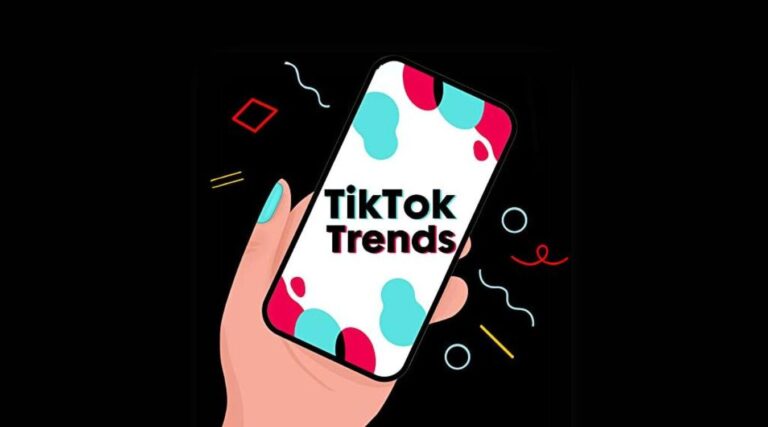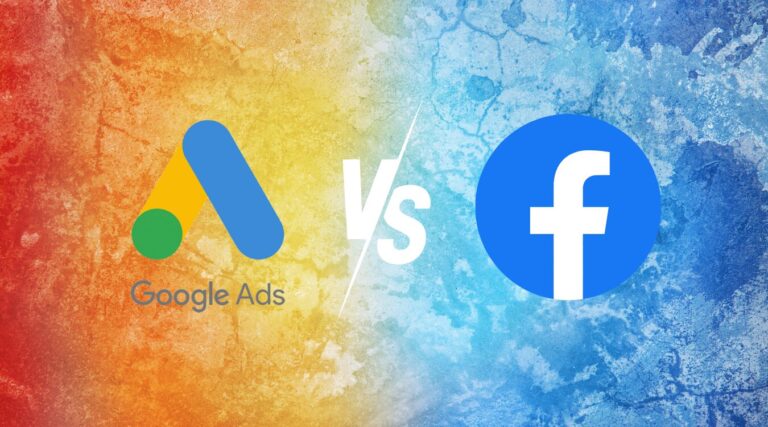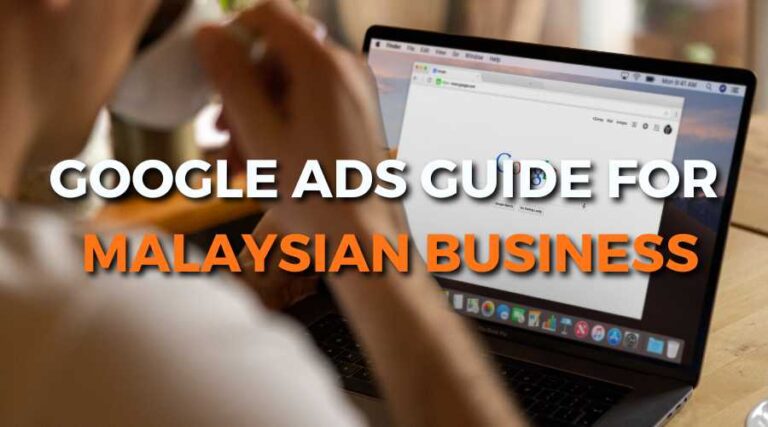
In the world of digital marketing, two giants dominate the landscape: Google Ads and Facebook Ads. Both platforms offer powerful tools to help businesses reach their target audiences and grow, but each comes with its own strengths, weaknesses, and best-use scenarios. So, how do you decide which platform is best for your Malaysian business?
In this comprehensive guide, we’ll compare Google Ads vs. Facebook Ads—looking at how they work, what makes them unique, and how you can leverage them to drive growth for your business in Malaysia.
Chapter 1: What Are Google Ads and Facebook Ads?
Before diving into the comparison, let’s understand what each platform offers.
What Is Google Ads?
Google Ads is a pay-per-click (PPC) advertising platform where businesses bid on keywords to have their ads displayed at the top of Google’s search engine results pages (SERPs) and across Google’s Display Network, YouTube, and Gmail. These ads target users actively searching for products or services, making it a great platform for capturing high-intent leads.
What Is Facebook Ads?
Facebook Ads are a form of paid social advertising where businesses promote their products or services through the Facebook platform, as well as its affiliated apps like Instagram. Unlike Google Ads, which targets search intent, Facebook Ads target users based on demographics, interests, and behaviors, making it an ideal platform for building awareness and engaging specific audiences.
Chapter 2: How Google Ads and Facebook Ads Work
Let’s explore how each platform operates and what makes them effective for different types of businesses.
How Google Ads Works
Google Ads operates on a PPC model, where advertisers bid on specific keywords. When a user searches for a keyword that matches the advertiser’s bid, Google determines ad placement based on Ad Rank, which considers the bid amount, Quality Score, and relevance. This model makes Google Ads particularly useful for capturing users who are further down the purchase funnel and ready to make a decision.
How Facebook Ads Works
Facebook Advertising operates using a CPC (cost-per-click) or CPM (cost-per-thousand impressions) model, but the targeting works differently. Instead of targeting based on user searches, Facebook Ads rely on users’ interests, demographic data, and behaviors. This allows businesses to reach users even when they aren’t actively searching for a product but may be influenced by ads that align with their preferences. It’s a platform perfect for awareness and brand engagement.
Chapter 3: Key Differences Between Google Ads and Facebook Ads
Now that we understand how both platforms work, let’s dive into their key differences to help you decide which is better suited for your Malaysian business.
1. Intent vs. Interest
- Google Ads focuses on search intent. When users enter a search query, they are actively looking for a product, service, or answer. This means users are often closer to the decision-making process.
- Facebook Ads focuses on interest targeting. Users may not be actively searching for a product but could still be persuaded by an ad if it aligns with their interests and preferences. This makes Facebook great for reaching users at the top of the funnel.
2. Targeting Capabilities
- Google Ads: Targeting is primarily keyword-based. You can also target based on location, device, and time, making it highly effective for local searches or service-oriented businesses.
- Facebook Ads: Targeting is based on demographics, interests, and behaviors. You can create highly specific audience segments based on user preferences, life events, and even actions taken outside Facebook (via Facebook Pixel).
3. Ad Formats
- Google Ads: Offers text-based search ads, display ads, shopping ads, and video ads (YouTube). These formats work best for businesses that want to be present when users are actively searching for a product.
- Facebook Ads: Offers image ads, video ads, carousel ads, and collection ads. The platform emphasizes visual storytelling, making it ideal for businesses that rely on engaging visual content.
4. Cost Structure
- Google Ads: Cost is largely based on bidding for keywords, with high competition driving up prices for certain industries. However, you can manage your budget by setting daily limits and adjusting bids.
- Facebook Ads: Costs vary based on your target audience, with prices being influenced by the competition for the same demographic. Because Facebook Ads target user interests rather than intent, CPM (cost per thousand impressions) is a common metric used to assess performance.
Chapter 4: When to Use Google Ads for Your Malaysian Business
Google Ads is ideal for businesses that need to target users who are actively searching for specific products or services. Here are some scenarios where Google Ads works best:
1. High-Intent Leads
If your business relies on capturing high-intent leads, such as users searching for local services (e.g., “best plumbing services in Kuala Lumpur”), Google Ads can deliver immediate results. Malaysian businesses offering niche products or services often benefit from this platform.
2. Competitive Keywords
For industries where search volume is high (such as automotive sales, legal services, or travel), Google Ads can ensure that your brand appears at the top of search results, allowing you to stay competitive and capture potential customers.
3. Local SEO Boost
Google Ads can also enhance your local SEO efforts by ensuring your business appears for geographically relevant searches. For Malaysian businesses targeting specific cities, towns, or even neighborhoods, Google Ads offers excellent location-based targeting.
Chapter 5: When to Use Facebook Ads for Your Malaysian Business
Facebook Ads shine when you need to build awareness and engage with audiences on a more personal level. Here are the best use cases for Facebook Ads:
1. Brand Awareness
Facebook Advertising are ideal for brand-building campaigns, especially if you’re a new or growing business in Malaysia looking to establish your name in the market. The platform allows you to tell your story through compelling visuals and video content, making it great for fostering emotional connections.
2. Visual Products or Services
If your business relies on visual content (e.g., fashion, beauty, real estate), Facebook Ads can showcase your products in creative ways. With carousel ads and Instagram integration, you can create engaging, scroll-stopping ads that catch the eye of your target audience.
3. Targeting Niche Audiences
Facebook Ads are unmatched when it comes to building custom audiences based on demographics, interests, and behaviors. This is particularly effective in Malaysia, where businesses can target specific groups based on factors like age, lifestyle, education, and more.
Chapter 6: Cost Comparison and ROI
Google Ads Costs in Malaysia
In Malaysia, Google Ads costs vary by industry and competition level. Cost-per-click (CPC) for highly competitive keywords (such as insurance, real estate, or legal services) can be higher, but businesses benefit from users with strong purchase intent, which can lead to higher conversion rates.
Facebook Ads Costs in Malaysia
Facebook Ads tend to have lower costs compared to Google Ads, with an average CPM (cost per thousand impressions) being relatively affordable in Malaysia. The platform’s interest-based targeting makes it a cost-effective option for brand awareness and customer engagement campaigns.
Chapter 7: Google Ads vs. Facebook Ads—Which is Best for Your Malaysian Business?
So, which is best—Google Ads or Facebook Ads? The answer depends on your business goals.
- Choose Google Ads if:
- You want to capture high-intent leads.
- Your audience is actively searching for your product or service.
- You rely on keyword-based targeting and search traffic.
- Choose Facebook Ads if:
- You want to build brand awareness and engage audiences.
- Your business thrives on visual storytelling.
- You want to target niche or specific interest-based audiences.
Conclusion: Leveraging Both Platforms
Ultimately, both Google Ads and Facebook Ads have their place in a well-rounded digital marketing strategy. For businesses in Malaysia, leveraging both platforms in a complementary manner can maximize your reach and impact. While Google Ads can help you capture users with high purchase intent, Facebook Advertising can engage and build brand loyalty among broader audiences.
The key is to align your ad strategy with your business objectives. By understanding the strengths of each platform, you can make informed decisions that drive meaningful results for your business in Malaysia.
Ready to boost your digital marketing efforts? Consider how both Google Ads and Facebook Ads can work together to grow your business.




